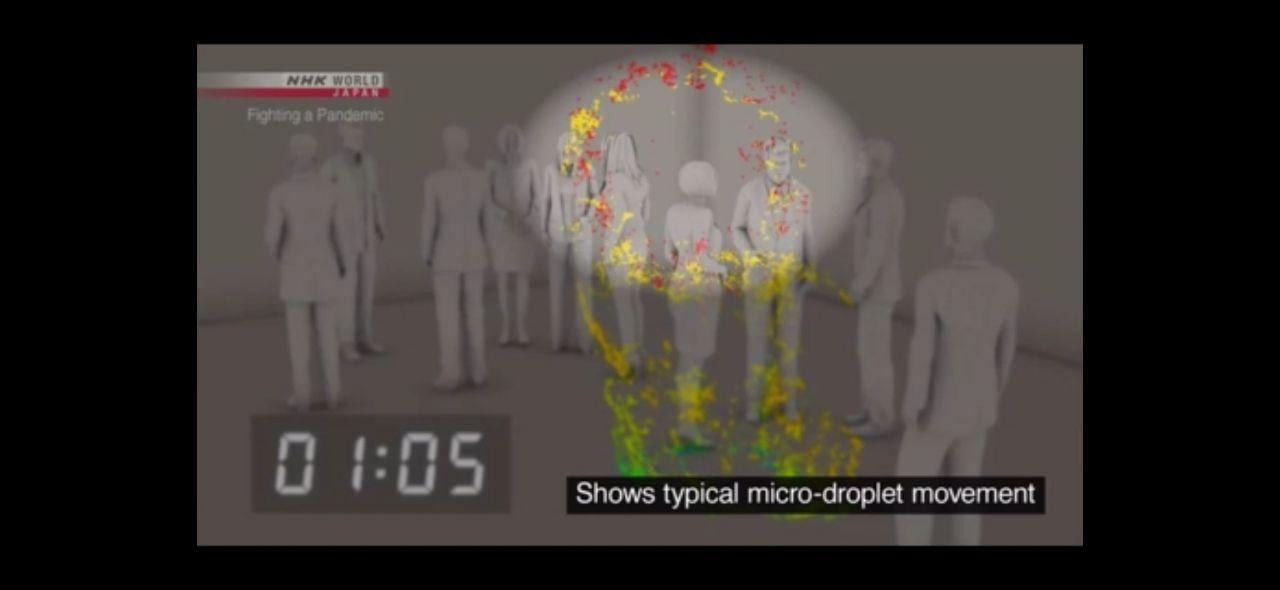
- Scientists in Japan discovered that micro particles could be causing coronavirus to spread much faster.
- Simple conversations in close proximity could spread the virus without coughs and sneezes.
- Solutions to better contain the virus will emerge as scientists break down how it spreads.
Scientists in Japan have found a third transmission route for coronavirus in a breakthrough study. Some are hopeful that the new findings could significantly reduce the spread of the virus in the coming weeks.
Mainstream news agency NHK reported:
So far, we have considered 2 main routes of transmission. One is infection by coming into contact with something that has the virus on it. The other is infection through droplets admitted in sneezes and coughs. But some experts say there is possibly a 3rd infection route.
The presence of another transmission could explain the unusually rapid spread of the virus across the globe.
Nanometer particles could be key to weakening coronavirus pandemic
According to Kazuhiro Tateda, president of the Japanese Association for Infectious Disease, micrometer particles could be transmitting coronavirus when people are in close proximity to one another.
Previously, scientists believed coronavirus spreads when droplets from coughs and sneezes travel through the air.
If the third route of transmission is micro droplet infection as Tateda and other Japanese scientists theorize, then the micrometer particles can spread even when people are having conversations or are simply close to each other.
The report read:
Experts are now looking at this new infection mechanism as a key to preventing a further spread of the virus. It seems transmissions are happening during conversations and even when people are standing a certain distance apart. These cases can’t be explained by ordinary droplet infection.
As CCN.com previously reported, both surgical and N-95 masks cannot prevent viral coronavirus particles from entering one’s body. If the coronavirus particles are suspected to be micrometer particles, it becomes all the more difficult to stop infection.
Jeffrey Swisher, chairman of California Pacific Medical Center’s department of anesthesiology, said:
This mask issue is really a problem. Again, you do not protect yourself against COVID-19 by wearing a mask! The viral particles are too small and the filtration ability of surgical masks is insufficient. Even N-95 masks fail to protect you.

How fast can micro droplets spread?
In an experiment, NHK found that when a person coughs once in an enclosed space the size of a classroom, about 100,000 droplets can be released within a few seconds.
Large droplets were seen falling to the floor within 20 to 30 seconds. Micro droplets, however, remained in the air for prolonged periods of time, leaving other people in the space vulnerable to possible infection.
With a single cough capable of spreading 100,000 droplets, micro droplets could also spread during simple conversations. This leaves people at risk of infection virtually all the time.
This article was edited by Sam Bourgi.
